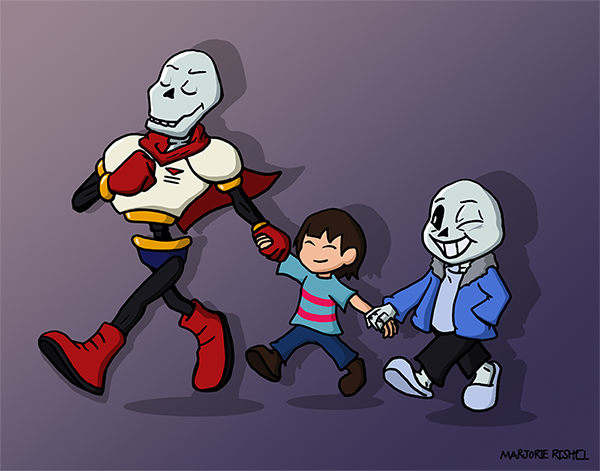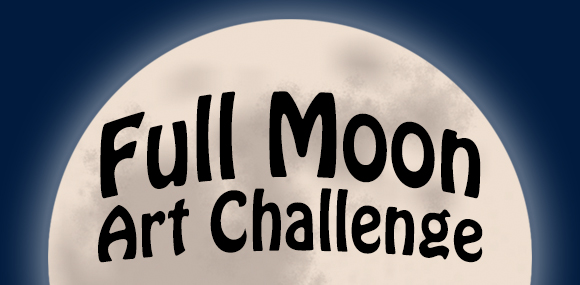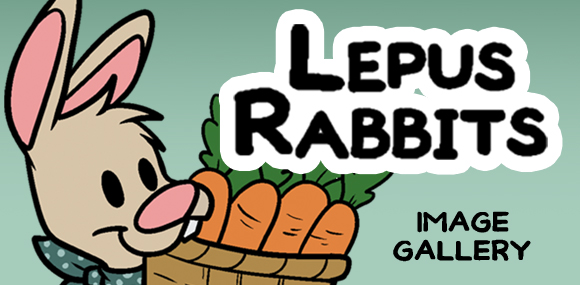I think Undertale has been putting trances on people.
If you’re not yet familiar with it, Undertale is a classic RPG-style computer game by Toby Fox (best known as a music composer for Homestuck.)
Undertale was just released last September. I became aware of it about two weeks ago when it slowly consumed conversations in nearly all of my social media feeds. I don’t usually play a lot of games online due to my inefficient computers and my abundance of old console games. I also tend to deliberate a lot before starting any new games, checking my schedule to make sure I can spare the time for another quest right now. Yet, after a few days of friends and strangers bombarding me with feedback on how sweet this game was, I decided to look into it. The next thing I remember, I was staring into the Undertale start-up screen on my brand-new Steam account.
This should have been my first clue that powerful forces were at work.
In many ways, Undertale pays homage to classic RPG’s of the 80’s and 90’s. The game displays pixilated graphics and some chip tune music as the player journeys through maze-like stages that progress steadily to the goal. But Undertale also adds a twist that completely changes the nature of the game.
You play as a small child who has accidentally fallen into an underground cavern. It turns out that this cavern houses a civilization of imprisoned monsters. Right away, you are confronted by two creatures. One will tell you that in this place, you must kill or be killed. The other tells you that there is always a non-violent solution to any conflict. And those two different philosophies are what makes Undertale remarkable – You can chose to play it like a traditional RPG by fighting and killing enemies to gain points, or you can make peace with your opponents instead. Yes, there are still random encounters and boss battles, but you have the option of figuring out ways to diffuse a fight instead of participating in it. Sure, fighting is easier. You can use the same attack strategy every time. Plus, the only way to gain experience and level up is by killing opponents. But there are more rewards for playing peacefully. New puzzles, paths, and cut scenes are revealed to those who can play nice.
And, just to make being the good guy even more appealing, most of your opponents are super lovable. For example, early in the game, you encounter Sans and Papyrus, two skeletal sentries who are charged with the task of capturing any human who should ever fall into their world. Luckily for you, they both stink at this job. One will try entirely too hard, while the other won’t try at all. They are amazing characters and it is likely that having to end either one of them will make you a little sad inside.

As far as gameplay goes, Undertale is pretty well put together. After all, no one would care about a game with cool gimmick if the gameplay itself stunk. Levels are well constructed and well laid out. Random encounters are frequent enough to make the game challenging, but not so frequent that it becomes a grind. The game’s a little short, but that’s okay, because it encourages you to replay it and use different strategies. Besides, players will be anxious to see what their good deeds or bad deeds will yield. It’s not a good idea to make people wait too long for answers.
Yes, Undertale is a good game, but why, exactly, is it putting such a spell on its devoted players? My suspicion is the world has been ready for the classic RPG formula to be applied to something other than battles – for a non-violent game to find a way to be just as satisfying as a violent one. Every now and then, no matter how old or jaded we get, we’ll always crave a space to celebrate friendship, peace, and love.
The thing that entrances us is Undertale’s heart.
(For those of you who have played it, yes, that was a pun.)
(I hope Sans would be pleased.)
-Marj












